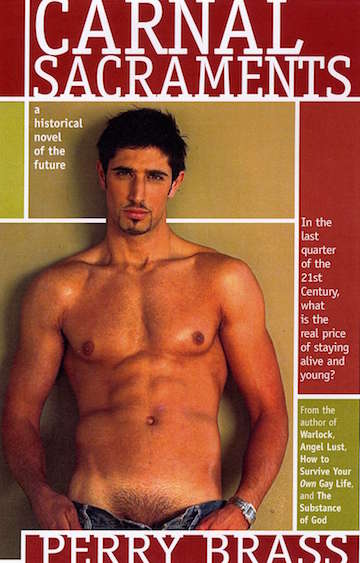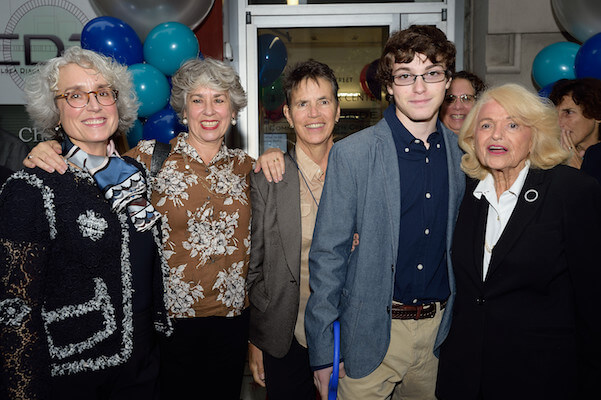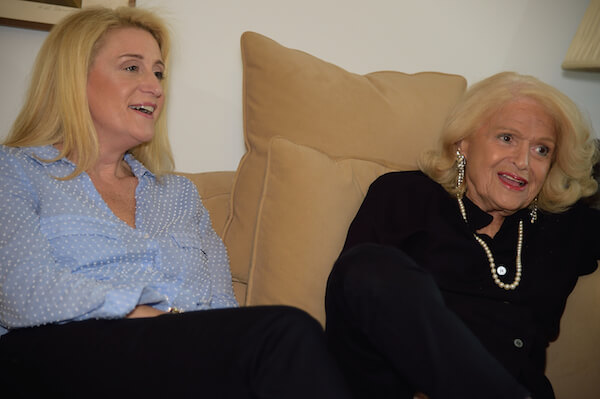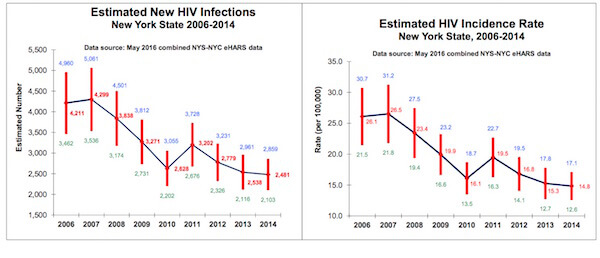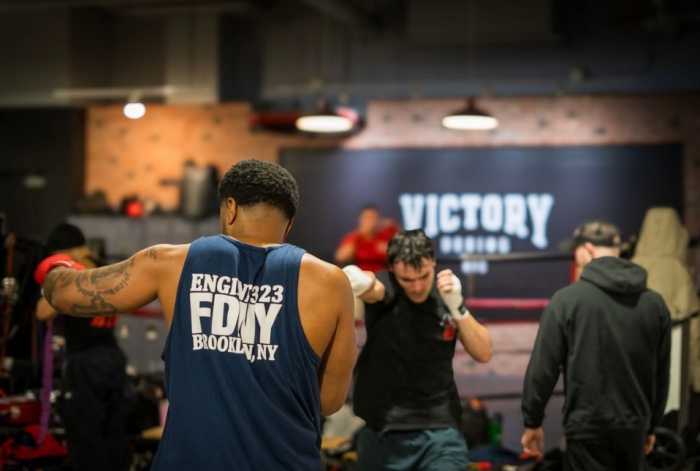Perry Brass, a pioneering activist from the earliest post-Stonewall years, writes about the issues facing gay men as they age. | RICARDO LIMON
Several years ago, a gay man, at that time a neighbor of mine, walked into my living room and stopped in front of the coffee table.
“You shouldn’t have that out,” Bryan said, pointing to a copy of AARP Magazine. “You can pass for a lot younger person. You have the looks and walk of a younger guy. Why tell people your age if you don’t have to?”
Bryan was at an awkward age himself: his mid-40s, just entering middle age, and after a lifetime of being young, the thought of being older and gay was scaring the hell out of him.
I had to tell him the truth: I really didn’t hide my age. Most people knew it; after all, as a writer, it’s pretty public information. I had, when I was younger, gone through the age heebie-jeebies a lot, much more so in my early and middle 20s than at any other time. I had come out into the world in my teens — sneaking into gay bars at 17 — and when you are a kid in the queer world you do get a lot of attention. There is no arguing about that.
Second in a series on gay men experiencing their older years
My great fear, certainly by my mid-20s, was that it would just disappear, along with any attraction other men had toward me. It’s a terrible fear — I know that — and endemic in the gay world where it seems like almost every periodical is filled with ads for plastic surgery, cosmetic enhancers, hair restorers, penis lifters, and other means to roll back the years.
I admit I am not 100-percent immune to it: I have used a moisturizer most of my life and adhere to a regimen of exercise and diet I have been on for decades. I like the fact that at 70 I have a lot of mobility, stamina, and strength — but the idea of hiding my age is not something I can make myself do. In my futurist novel “Carnal Sacraments,” a man who looks so much younger than his actual age of 78 is dancing with a younger man in a club who suddenly looks at him and says, “You just can’t be that old!”
Our culture makes age into a horrifying handicap when it shouldn’t be. I have always found older men extremely attractive, even when I was in my 20s, though at that point my contemporaries thought I just had “strange tastes.” What I liked about older men — meaning, at that point, men in their 40s and even 50s — was the self-possession they had, that they fit into their own world. My young friends did not have that — they were working too hard to find a place in their own.
The bad side of this equation though is that older men often cannot resist that impulse either to give advice you’re not interested in — kind of “eat your spinach,” like your Mom, and “do your job”— or to compare their own generation to the next one in a way that finds the younger one lacking somehow. Every older generation does have this pernicious desire to do that, and when I have seen older guys doing this to kids… well, I cringe.
In Perry Brass’ futuristic novel “Carnal Sacraments,” a young man finds it hard to believe his dance partner is 78. | BELHUE PRESS/ COVER PHOTO BY ANDRE DELOACH
There was nothing in my youth that I find so exalted that it needs to be a model for younger people now. The fabled “free love” 1960s and 1970s had enough downsides — rampant racism and sexism, the Viet Nam War, crime and violence on the streets, just to name a few — that I would not want a return to them for anything. There were definitely good sides, and much of that was simply economic: it was a lot cheaper to be young then (or any age). Young people really need and deserve an economic freedom that they don’t have now.
I did crazy things when I was a kid, like going to Europe at 21 for the first time with $80 in my pocket — and spending three months there. My companions were often stoned hippies, I learned how to survive freezing-cold showers, 10th-rate hotels, and bed bugs, but it was a great adventure that I loved. You couldn’t do that now, but maybe you shouldn’t have to.
Today, kids have the Internet and they can find out what’s ahead for them, what resources are available to them, and even how to crowd-source their first trip abroad. Young people at 21 probably know a lot more than I did then, certainly as far as financial sophistication is concerned (everything now is so much about money), but what I did know was how to get along in the “big world.” I had been trained to socialize well, and to be, as a form of courtesy, curious about other people, their lives and feelings. That came from my growing up in the South at a time when so much of life required a tie and jacket. As Dick Leitsch, the last president of the Mattachine Society, who had grown up in Kentucky, once said to me, “We were trained to be belles.”
That was the truth. I wish more of us would remember that. Not every one of us is going to be a “Southern belle,” but some of that training has genuinely helped me in growing older, allowing me to not be so focused on myself, but rather secure enough in myself to let other people in. And also to remember that I still get this huge kick out of life — and that in itself is very young and sexy.
This is the second in a series of articles by Perry Brass on gay aging. Future pieces in the series will focus on loss and not being alone, on housing solutions, on sexuality and its changing formats, among other issues. His 19 books include the novels“The Substance of God,” “Carnal Sacraments,” and “King of Angels,” and the classic gay self-help book “How to Survive Your Own Gay Life,” as well as “The Manly Art of Seduction,” and “The Manly Pursuit of Desire and Love.” You can learn more about these books at his new blog at Perry Brass: Gay Self Help Books or at perrybrass.com. A member of New York’s radical Gay Liberation Front, in 1972, with two friends, he co-founded the Gay Men’s Health Project Clinic, the first clinic specifically for gay men on the East Coast, still operating as the Callen-Lorde Community Health Center.

